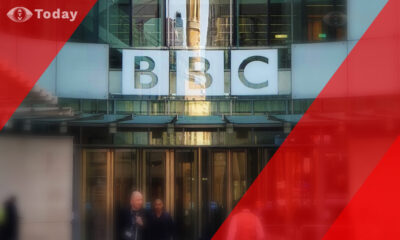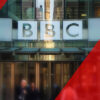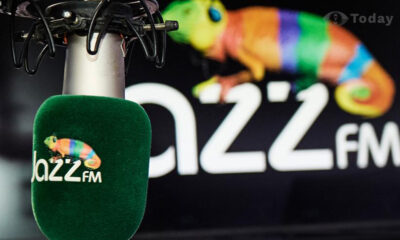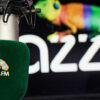Alan Davey to step down as Controller of BBC Radio 3 next year.
He leaves his role to concentrate on his work supporting arts and music organisations, and to pursue his academic interests.
Alan Davey:
“There is nothing like the combination of Radio 3, the Proms and the BBC Orchestras and Choirs anywhere else. Choosing when to move on is always tricky, but now is the time for me to hand over the role to someone else. They will inherit, to borrow a phrase, on a bad day the best job in Britain, and on a good day the best job in the world.
“Since Radio 3’s first day of broadcasting, it has known that the key to securing the future of music is in finding new talent and offering ways in to new audiences, and it’s the quality and expertise involved that makes the station unique. Radio 3 endures because of its audience, who live their lives by its rhythms, and because of its staff and musicians, who are endlessly inventive, committed and fun. On Radio 3 we play over whole 17,000 pieces of music a year and explore thousands more. We believe the greatest public service is found in showing, not just telling, of the riches of the arts. It has been an honour and a delight to lead this mission.”
Alan began his post as Controller in January 2015 and, in addition to his main role, he is the sponsor for the ambitious BBC Music Studios project, positioning the BBC at the heart of London’s brand new cultural quarter in Stratford. He is also a champion for socio-economic diversity at the BBC and serves on the European Broadcasting Union Classical Music Committee.
During his tenure, Alan has increased and stabilised Radio 3’s audience at over two million weekly listeners. He has introduced a number of themed seasons across the network, starting from 2015’s Northern Lights, a three-week festival inspired by the anniversary of the birth of Sibelius, to a season devoted to Twilight in October 2021.
New music has been cemented at the heart of programming, from Breakfast to Night Tracks. Radio 3 and the Proms have commissioned a wide range of new works, from composers ranging from Harrison Birtwistle to Anna Thorvaldsdottir. Series such as Open Ear, Exposure and The New Music Show have made contemporary music and the work of small venues accessible. In drama and speech programming, Alan has brought new strands such as The Listening Service to the station, and a dramatisation of the medieval Saga Of The Volsungs when the network broadcast Wagner’s full Ring cycle.
Alan has also been committed to audio innovation and has developed a new strand of adventures in sound. Listeners of ‘Slow Radio’ have followed cows in Connemara, a day in the life of Honey the dog, and a series of sound walks, including tracing Bach’s journey on foot across northern Germany.
Alan has ensured Radio 3’s position and visibility across BBC Sounds, commissioning separate playlists for younger listeners, such as Classical Focus and the popular Mindful Mix, and introduced a number of mood-based programmes such as the forthcoming Ultimate Calm, fronted by Grammy-nominated Olafur Arnalds, which airs in October 2022.
Radio 3’s well-established New Generation Artists Scheme has been close to Alan’s heart, nurturing young talent and offering broadcast opportunities to artists at the beginning of their international careers. In 2021 the scheme saw a record number of participants, with a new cohort and an extension for those already on it, in response to the devastating effect of the Covid-19 pandemic.
Alan was a key player in the BBC’s Culture In Quarantine response to Covid lockdowns, commissioning composers to produce new works for Breakfast, putting on plays postponed by Covid-19 and broadcasting live the first music from the Wigmore Hall while restrictions did not allow live concerts.
Under Alan’s leadership the BBC’s Orchestras and Choirs have come together for celebrations of their unique collective power, and have expanded both their repertoire and their reach, now performing throughout all corners of the UK, as have the BBC Proms. The Performing Groups have focused on unfairly forgotten works, and the BBC Proms committed to programming 50 percent female composers by 2022.
Charlotte Moore, BBC Chief Content Officer:
“Alan has brought extraordinary vision to Radio 3. Under his watch, over the past eight years, Radio 3’s editorial ambition has flourished. Alan has skilfully, and with passion, led our classical activities in an ever-changing world – constantly exploring new opportunities to reach the widest possible audience for our classical music output. It’s been such a pleasure to work with Alan and I wish him all the best in his roles going forward and his continuing academic work.”
Before his time at the BBC, Alan served as Chief Executive Officer at Arts Council England (2008-2014) after an extensive career in the Civil Service where his roles included Head of Arts and Director of Arts and Culture at the DCMS. In the 2015 New Year Honours Alan was awarded a CBE for his services to the Arts. He hold honorary doctorates from the Universities of Birmingham and Teesside. He serves as Chair of Governors at Trinity Laban, Vice Chair of the English Folk Dance and Song Society, and a Board member of the Hall for Cornwall.
Alan Davey will continue as Controller of Radio 3 and the Proms until next spring. The BBC will appoint his replacement in due course.












